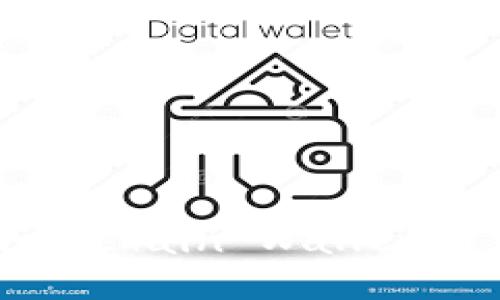As the world becomes increasingly digital, the rise of cryptocurrencies and blockchain technology is transforming how we think about money and assets. A crucial component of this digital revolution is the blockchain wallet. This guide will explore the intricacies of blockchain wallets, their types, functionalities, and importance. We’ll also delve into related questions that can help enhance your understanding of cryptocurrency and digital asset management.

A blockchain wallet is a digital tool that allows users to store, send, and receive cryptocurrencies like Bitcoin, Ethereum, and others. While wallets do not actually store cryptocurrency in the traditional sense, they hold the necessary information to access and manage your digital assets on the blockchain.
When a transaction occurs, the wallet interacts with the blockchain to facilitate the transfer of funds. The wallet contains your public and private keys—cryptographic codes that allow you to send and receive your coins securely. The public key is akin to your bank account number, while the private key is like your PIN; it must remain confidential to protect your assets.
There are several types of blockchain wallets available, each catering to different needs and preferences:
Hot wallets are connected to the internet, making them easy to access and use for frequent transactions. They are generally free and user-friendly, making them popular among new users. However, being online also makes hot wallets more vulnerable to hacks and cyberattacks.
Cold wallets, on the other hand, are offline storage options, making them much more secure against online threats. They come in the form of hardware wallets (like Ledger and Trezor) or paper wallets. Cold wallets are ideal for long-term storage of cryptocurrency, as they do not connect to the internet.
Mobile wallets are applications that can be downloaded on smartphones, allowing users to access their cryptocurrencies on-the-go. They typically combine the user-friendliness of hot wallets with some additional security features, making them a convenient choice.
Desktop wallets are software applications installed on a computer. They provide full control over the wallet and private keys. While they offer enhanced security compared to hot wallets, users must ensure their computers are secure to avoid malware threats.
Web wallets run in the cloud and are accessible from any device with internet connectivity. While they offer convenience, they also pose security risks, as users rely on the wallet provider to secure their assets.

Blockchain wallets play a crucial role in the cryptocurrency ecosystem. They not only facilitate transactions but also empower users by providing them control over their assets. A well-secured wallet can save users from being victims of theft and provide peace of mind that their investments are safe.
Moreover, understanding how blockchain wallets work can enhance users’ ability to navigate the world of cryptocurrencies and make informed decisions about digital investments.
Creating a blockchain wallet is a straightforward process. Depending on the type of wallet you choose (hot or cold), the steps may vary slightly. Here’s a general guideline on how to create one:
1. **Choose a Wallet Type**: First, decide whether you want a hot wallet for frequent transactions or a cold wallet for secure long-term storage.
2. **Download or Buy**: For hot wallets, download the wallet application from a reputable source. For cold wallets, purchase from a trusted provider.
3. **Set Up an Account**: Follow the instructions provided to create a new wallet. This usually involves creating a password and generating a backup phrase, which is critical for recovering your assets if you forget your password.
4. **Secure Your Keys**: Ensure that you keep your private keys and backup phrases secure. Consider using a password manager for additional security.
5. **Fund Your Wallet**: You can now fund your wallet by transferring cryptocurrency from an exchange or another wallet.
6. **Stay Informed**: Regularly update your wallet software and stay informed about security best practices to protect your assets.
While blockchain wallets serve as an essential tool for managing cryptocurrencies, they also come with inherent risks. Understanding these risks can help users take necessary precautions to secure their assets.
1. **Hacking**: Hot wallets are particularly vulnerable to hacking due to their internet connectivity. If a hacker obtains your private keys, they can steal your funds. To mitigate this risk, choose wallets with strong security features.
2. **Phishing Attacks**: Scammers often create fake websites that mimic legitimate wallet platforms, tricking users into entering their credentials. Always double-check the website URL and use two-factor authentication for added security.
3. **Lost Private Keys**: Losing access to your private keys means you can’t access your funds. Always backup your keys and phrases and store them in a secure location.
4. **Hardware Failures**: For cold wallets, physical damage to the wallet device or computer can result in the loss of access if proper backups aren’t made. Always ensure you have a recovery plan.
Choosing the right blockchain wallet depends on various factors, including your security preferences, usage frequency, and the type of cryptocurrency you plan to store. Here’s how to evaluate your options:
1. **Usage Frequency**: If you intend to make regular transactions, a hot wallet may be more practical. However, if you are considering long-term investment, a cold wallet is a more secure option.
2. **Security Features**: Look for wallets that offer robust security features, such as two-factor authentication, encryption, and backup options. Cold wallets provide a higher level of security but may be less convenient.
3. **User Experience**: Consider how user-friendly a wallet is. Beginners might prefer mobile or web wallets due to their ease of use, while more experienced users may choose desktop or hardware wallets for enhanced control.
4. **Supported Cryptocurrencies**: Ensure the wallet you choose supports the types of cryptocurrencies you want to hold. Some wallets may only support specific coins.
5. **Community Reviews**: Research user reviews and ratings to gauge the reliability and security of the wallet service. Engaging with cryptocurrency communities can provide valuable insights.
Yes, you can easily transfer funds between wallets. This can be useful if you want to move assets from a hot wallet to a cold wallet for security purposes, or if you are switching between wallet providers. Here’s how to do it:
1. **Open the Source Wallet**: Begin by accessing the wallet where your funds are currently held.
2. **Initiate a Transaction**: Select the option to send or transfer funds and enter the recipient wallet address. Be sure to double-check the address, as sending funds to an incorrect address can result in permanent loss.
3. **Specify the Amount**: Indicate how much cryptocurrency you wish to transfer. Some wallets also allow you to set transaction fees, which can affect the speed of processing.
4. **Confirm the Transaction**: Review the details and confirm the transaction. Most wallets will provide a transaction ID that you can use to track the progress of your transfer on the blockchain.
5. **Check the Recipient Wallet**: Once the transaction is confirmed, check the recipient wallet to ensure that the funds have been successfully received.
It’s crucial to practice caution and make sure both wallets are secure throughout the process. Always double-check details before initiating any transfers.
In summary, blockchain wallets are invaluable tools for anyone engaging with cryptocurrencies. Understanding their functionalities, types, risks, and secure practices is essential for effective asset management. As technology and cryptocurrency continue to evolve, staying informed about new wallet developments and security measures will empower users to navigate this digital landscape more confidently.
leave a reply